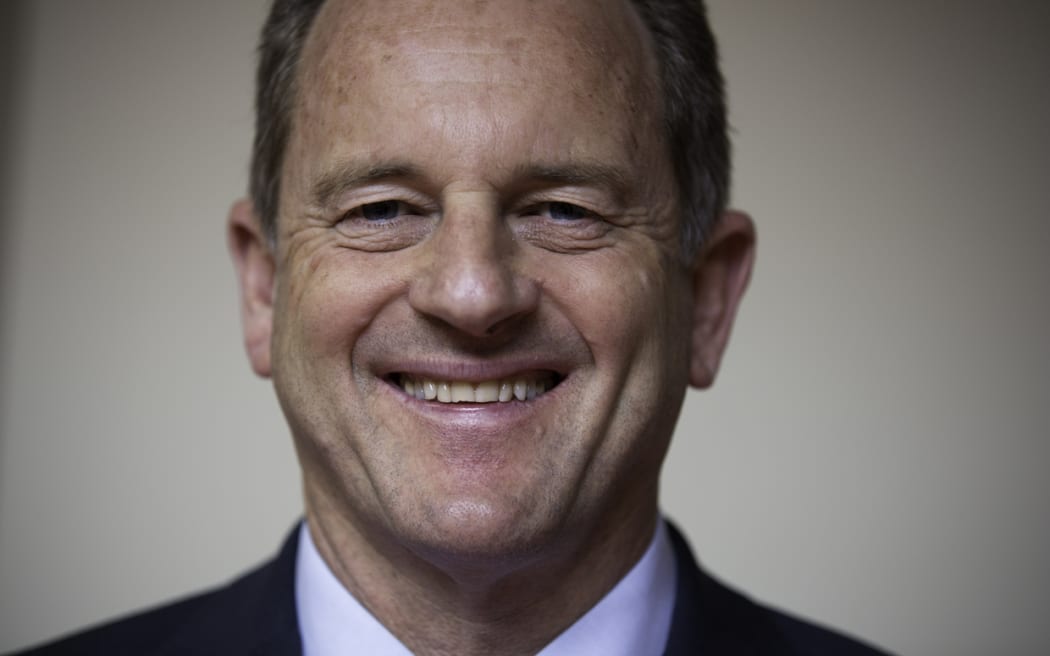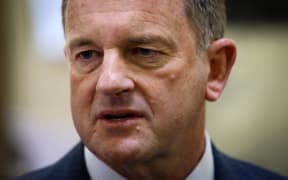Former Labour leader David Shearer says the unrest in South Sudan appears to finally be easing.

David Shearer has been leading the UN's peacekeeping mission in South Sudan for two years now since leaving parliament. Photo: RNZ / Diego Opatowski
Civil war and famine have ravaged South Sudan for five years now, killing almost 400,000 people and forcing more than 2.4 million to flee to neighbouring countries.
Previous peace deals have broken down, but a new one signed in August has largely held.
Mr Shearer was part of that deal as head of the United Nations' [UN] peacekeeping mission there in the UN compound in Juba.
He just signed a new one-year contract to stay on in South Sudan, but returned home to New Zealand for the holidays.
He told Summer Report that after two years in the war-torn country, his job isn't done yet.
"This year we've had some positive news towards the end of the year, there's been a peace agreement signed and the UN is pretty important in terms of getting in behind that.
"I felt that if I was staying on, obviously knew the situation, knew the players, I was involved with the peace agreement, that would be a positive thing.
"I felt also that two years is a long time in that situation, but another year [the UN] would be able to consolidate what we've been able to do there and really get it moving.
"It's going to be a more positive year this year, I hope, than last year so if that works out it will be good news," he said.
Mr Shearer said South Sudan needs all the support it can get at the moment.
"South Sudan is going through a civil war and there was attacks between various factions which lead to some really appalling humans rights abuses.
"I've got to say, four months ago I didn't give the peace agreement any chance of success, but there was a bit of a shift in gear and Sudan, the former enemy of South Sudan, took over the running of the peace agreement and really twisted some arms, got faction leaders around the table and got we got an agreement signed.
"It hasn't been perfect, there's been quite a lot of violations of the cease fire and that sort of thing which we've been looking at and supporting, but we've felt that it can persist this time and if it does then that gives us great hope for next year.
"A third of the 12 million population [of South Sudan] have been displaced, they've had to leave their homes because of the fighting so it has huge ramifications for people trying to return to their homes and get on with their lives."
Mr Shearer said the UN's mission in South Sudan is the largest peacekeeping operation in the world - providing aid to more than 5.5 million people at a cost in the hundreds of millions of dollars.
More than 19,000 people are working for the UN in the South Sudan operation and Mr Shearer said they're finally starting to see progress.
"We're moving into more resilience type of programming where ... we're getting alongside communities and encouraging them to be able to look after themselves, fend for themselves and giving them both the practical tools, but also the support and security through our peacekeepers for them to get back on with their lives.
"Because it's been at war with Sudan for the last 30 or 40 years, there's been very little invested in capital equipment.
"For example, roads - there's about 300 kilometres of tarmac roads in a country that is about the size of France. The rest of the road is dirt roads which wash out in the rainy season which run from June through to about December.
"Five engineering teams [from the peacekeeping team] are literally repairing roads so that trade and food can move from one end of the country to the other," he said.
Despite it being the most challenging operation he's worked on in his career, Mr Shearer said he does enjoy it.
"Sometimes it's very stressful and I have to say I stare at the ceiling many, many nights worrying and thinking about different things.
"But at the end of the day I find it incredibly satisfying that because we're there, we're able to support and assist a country that is brand new, it's the newest country in the world.
"But also if we weren't there, I know that tens of thousands of people wouldn't be alive so we really are making a difference."
In late 2016, Mr Shearer announced his resignation from New Zealand parliament to take up the role in South Sudan after being head hunted by then UN Secretary General Ban Ki-moon.
He admitted his decision came at a pivotal moment in the Labour Party, but he does not dwell on his decision to leave.
"My timing in politics wasn't the best - I always sort of say timing, talent and luck is the three ingredients in politics.
"In some ways I think 'well it would've been nice, after being all that time in opposition, actually being in government,' but then this job came up and it's one of those things I've wanted to do all my life and at the time, to be honest, it didn't look like we [Labour] had much of a chance at the last election.
"I don't have any regrets about doing it, I love what I do and I really do feel like we're making a difference. I'm working with some really good, committed people who are doing there best as well. It's one of those things in life - you make a decision and you get on with it and don't look back."


